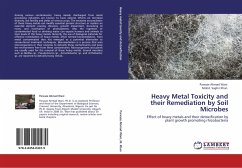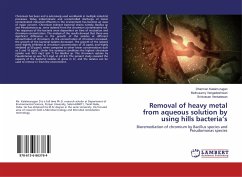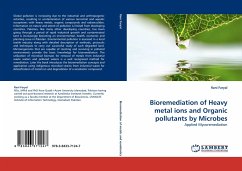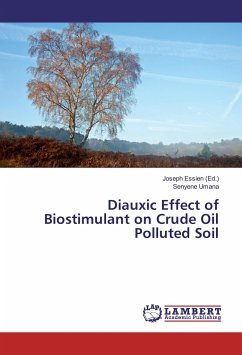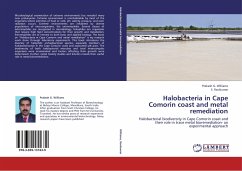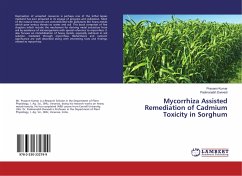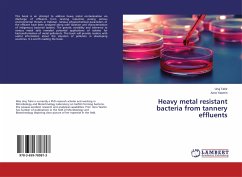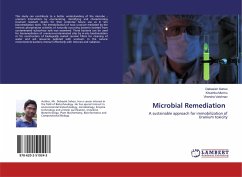Among various contaminants, heavy metals, discharged from metal processing industries are known to have adverse effects on microbial diversity, soil fertility and yields of various crops. The excessive accumulation of these heavy metals can modify essential protein structure or replace an essential element causing chlorosis, growth impairment, browning of roots, and inactivation of photosystems. Also the ingestion of contaminated food or drinking water can expose humans and animals to toxic levels of the heavy metals. Recently, the use of biological materials for effective remediation of heavy metals, often termed bioremediation, from metal contaminated sites has emerged as a potential alternative to conventional treatment techniques. Bioremediation is a process that uses microorganisms or their enzymes to detoxify these contaminants and keep the environment free from these contaminants. Microorganisms and plants are usually used for the removal of these heavy metals. Several microbes such as Bacillus sp., Pseudomonas sp., Acinetiobacter sp. and Arthobacter sp. are reported to detoxify heavy metals.
Bitte wählen Sie Ihr Anliegen aus.
Rechnungen
Retourenschein anfordern
Bestellstatus
Storno

